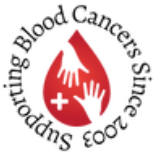People who have recently received a diagnosis of a blood cancer often have questions about the disease, the prognosis and the treatments available. This section of the Web site is arranged to provide information to answer some of these questions and assist patients in finding additional resources.
It is important to learn about the disease, but also to learn about your insurance coverage, healthcare facilities and how to obtain support for yourself and your family. Specific questions may also be answered by information specialists at The Leukemia & Lymphoma Foundation.
The word diagnosis means to distinguish or identify a disease. Patients usually arrive at the doctor’s office with a series of complaints or symptoms. Through questioning and examination the physician may also observe abnormal ‘signs’, such as an enlarged spleen. The results of laboratory tests provide further information. The accumulated evidence leads the physician to a decision about the final diagnosis.
Patients who receive a diagnosis often wish to learn more about the disease and the tests used to determine the diagnosis. This section is here to assist.
Questions for your doctor…
Once a diagnosis of a blood cancer is determined there are several questions that patients and families should consider asking their physician.
- What tests or additional studies will be required to arrive at a diagnosis?
- What is the usual approach to treatment?
- Are there new treatments being developed that may be useful to consider?
Several other examples are shown in the information shown below.
When I meet with a specialist, what should I ask?
Advances in treatment of blood cancers have led to a multitude of treatment options, which must be chosen by you, your family, and your oncologist. While The Leukemia & Lymphoma Society cannot recommend the best specialist or treatment for you, we can suggest several issues to address before or during your appointment with the oncologist. Specific questions might include:
- Is care covered by my insurance plan?
- Are you Board certified and licensed?
- Are you a member of any professional societies?
- Are you experienced in treating leukemia, lymphoma (or other blood-related cancer)?
- Where would I receive my treatment?
- Is your hospital, cancer center, or clinic accredited and experienced in treating blood cancers?
- Am I eligible for stem cell transplantation?
- Are there local facilities to obtain a stem cell transplant?
- How long would I usually have to wait for appointments or returning of my phone calls?
- Are you or a member of your staff always available in case I have questions or problems?
- Will there be nurses, social workers, and case managers available to help me with my physical needs and quality of life concerns?
- If pain becomes a problem, how would we manage it?
- Am I eligible for a clinical trial? Are there any clinical trials available through your hospital, center, or clinic?
- Are there any other oncologists specializing in blood-related cancers with whom you would recommend I speak?
In addition to these questions, you can ask anything else about your disease, treatment, and personal issues you would like. You will want to feel comfortable discussing your concerns with your oncologist throughout your treatment, and this is a good place to start. It is also a good idea to request a copy of your medical records.
Again, you may find it helpful to bring a family member or friend to participate in the discussion, take notes and provide support. This will allow you to relax, knowing that if you miss anything you can confer with the other person later.













